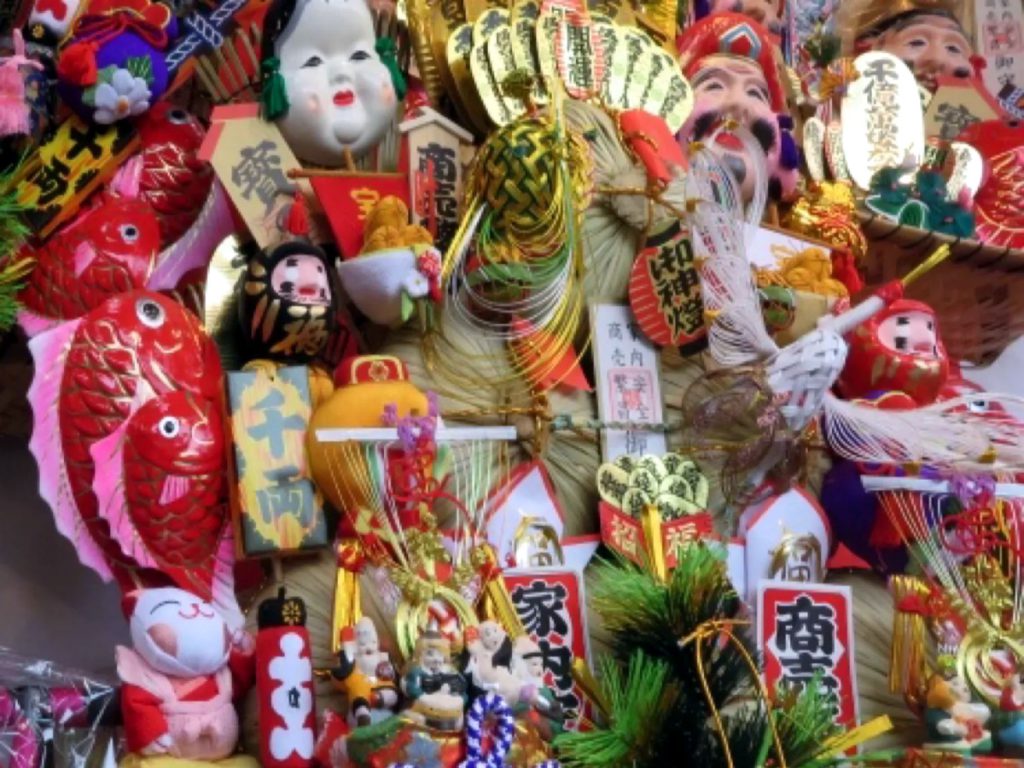
For three days from the 9th to the 11th, the precincts of Ebisu Shrine in the Kansai area will be filled with people who come to buy lucky bamboo and rakes decorated with sea bream and oval gold coins, while chanting “Business prosper, bring bamboo grass!”. This festival attracts more than one million people in the Kansai region, but Ebisu has long been worshiped by the common people as the god of fisheries and the god of the market. It is said that it was associated with the seven gods of good fortune and came to be worshiped as the god of fortune as it is today. In the Hanshin area, which prospered as a center of commerce during the Edo period, an event called “Ebisu-ko” was born, in which each merchant’s family and business associates worshiped Ebisu. And then Nishinomiya Shrine (Nishinomiya city, Hyogo Prefecture), Imamiya Ebisu Shrine (Naniwa Ward, Osaka City) came to be worshiped as the god of prosperous business and furthermore, the Ebisuko held there became a big crowd as “Toka Ebisu”. In the Kanto region, only Asakusa Hatsukabi and Kiryu Nishinomiya Shrine’s Ebisu are known, and few people seem to know about Toka Ebisu.
9日から11日までの3日間、関西の恵比寿神社境内では「商売繁盛、笹もってこい」のかけ声が飛び交い、鯛や小判などの飾りをつけた縁起物の福笹や熊手を買い求める参拝客であふれます。関西では100万を超える人が集まるこのお祭りですが、恵比寿様は、庶民のあいだでは、古くから漁業の神や市場の神として信仰を集め、室町の世になってから、インドや中国から渡ってきた七福神と結びついて、いまのような福の神としてまつられるようになったと言われています。そして、江戸時代、商業の中心地として栄えた阪神地域では、商人の家ごと、同業者ごとに恵比寿様をまつる「えびす講」という行事が生まれ、古くから恵比寿様をまつる西宮神社(兵庫県西宮市)や今宮戎神社(大阪市浪速区)が、商売繁盛の神として信仰を集めるようになり、そこで行われるえびす講は「十日戎(とおかえびす)」として、大きなにぎわいを見せるようになるのです。関東では浅草廿日戎や桐生西宮神社の戎が知られている程度で、十日戎を知る人は少ない様です。
